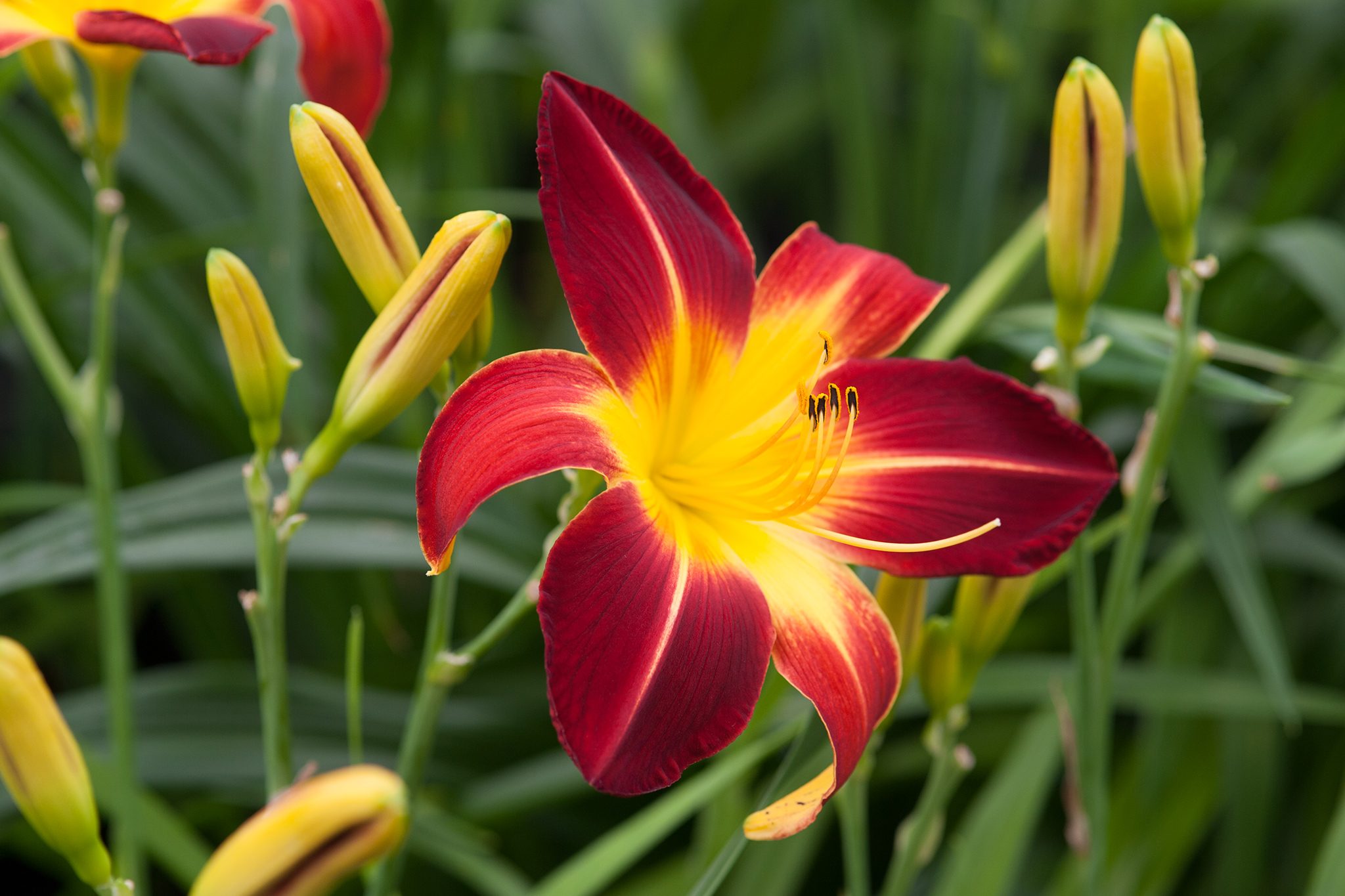
Daylilies are more than just pretty flowers in your garden. These vibrant blooms, known scientifically as Hemerocallis, have a rich history and fascinating characteristics. Did you know that daylilies are not true lilies? Unlike true lilies, which belong to the Liliaceae family, daylilies are part of the Asphodelaceae family. They are called daylilies because each flower lasts only one day, but don't worry—each plant produces many buds, ensuring a continuous display of color. These hardy perennials are loved by gardeners for their ability to thrive in various climates and soil types. Want to learn more about these amazing plants? Here are 31 facts that will make you appreciate daylilies even more!
Daylilies: A Burst of Color in Your Garden
Daylilies are a gardener's delight. These vibrant flowers bring a splash of color to any garden. Let's dive into some fascinating facts about these beautiful blooms.
-
Daylilies are not true lilies. Despite their name, daylilies belong to the genus Hemerocallis, not the Lilium genus.
-
Each bloom lasts just one day. True to their name, each daylily flower blooms for only a single day.
-
Daylilies are perennials. These plants come back year after year, making them a favorite among gardeners.
-
They are incredibly hardy. Daylilies can thrive in a variety of climates and soil types.
-
There are thousands of varieties. Over 80,000 registered cultivars exist, offering a wide range of colors and forms.
The Science Behind Daylilies
Understanding the biology of daylilies can help you appreciate these flowers even more. Here are some scientific facts about daylilies.
-
Daylilies have a unique root system. Their roots are fibrous and tuberous, storing nutrients and water.
-
They are diploid or tetraploid. Daylilies can have two sets of chromosomes (diploid) or four sets (tetraploid).
-
Pollination is easy. Bees, butterflies, and even hummingbirds can pollinate daylilies.
-
They can be hybridized. Gardeners often cross different varieties to create new cultivars.
-
Daylilies have a dormant period. In colder climates, they go dormant in winter and re-emerge in spring.
Growing and Caring for Daylilies
Daylilies are relatively low-maintenance, but knowing how to care for them can ensure they thrive. Here are some tips and facts about growing daylilies.
-
They prefer full sun. Daylilies thrive in at least six hours of direct sunlight daily.
-
Well-drained soil is best. While they can tolerate various soil types, well-drained soil is ideal.
-
Watering needs are moderate. Daylilies need about an inch of water per week.
-
Fertilize in spring. A balanced fertilizer in early spring can boost growth and blooms.
-
Deadheading encourages more blooms. Removing spent flowers can promote more flowering.
Daylilies in History and Culture
Daylilies have been around for centuries and have found their way into various aspects of human culture. Here are some historical and cultural facts.
-
Originated in Asia. Daylilies are native to Asia, particularly China, Korea, and Japan.
-
Used in traditional medicine. In some cultures, daylilies have been used for their medicinal properties.
-
Symbolize motherhood. In China, daylilies are a symbol of motherhood and maternal love.
-
Featured in art and literature. These flowers have appeared in various works of art and literature throughout history.
-
Popular in gardens worldwide. Today, daylilies are a staple in gardens around the globe.
Fun and Unusual Facts About Daylilies
Daylilies have some quirky and fun aspects that make them even more interesting. Here are some unusual facts.
-
Edible flowers. Daylily flowers are edible and can be used in salads or as a garnish.
-
Fragrant varieties exist. While not all daylilies are fragrant, some cultivars have a pleasant scent.
-
They can be invasive. In some regions, daylilies can spread rapidly and become invasive.
-
Resistant to pests. Daylilies are generally resistant to most pests and diseases.
-
Can be grown in containers. With proper care, daylilies can thrive in pots and containers.
Daylilies and Wildlife
Daylilies are not just beautiful; they also play a role in supporting local wildlife. Here are some facts about daylilies and their relationship with wildlife.
-
Attract pollinators. Bees, butterflies, and hummingbirds are drawn to daylilies.
-
Deer-resistant. Many daylily varieties are resistant to deer, making them a good choice for areas with deer problems.
-
Provide shelter. The dense foliage of daylilies can offer shelter to small animals and insects.
-
Support biodiversity. By attracting various pollinators, daylilies help support local biodiversity.
-
Non-toxic to pets. Unlike some other garden plants, daylilies are generally safe for pets.
-
Can improve soil health. The roots of daylilies can help improve soil structure and health over time.
Final Thoughts on Daylilies
Daylilies are more than just pretty flowers. They’re tough, adaptable, and come in a rainbow of colors. These plants can thrive in various climates, making them a gardener’s dream. Plus, they’re low-maintenance, needing little more than sunlight and occasional watering. Their blooms may only last a day, but each plant produces many flowers, ensuring a colorful display throughout the season.
Daylilies also have a rich history and cultural significance, especially in Asia, where they’re used in cooking and traditional medicine. Whether you’re a seasoned gardener or a newbie, adding daylilies to your garden can bring beauty and a touch of history. So, next time you see these vibrant flowers, you’ll know there’s more to them than meets the eye. Happy gardening!
Was this page helpful?
Our commitment to delivering trustworthy and engaging content is at the heart of what we do. Each fact on our site is contributed by real users like you, bringing a wealth of diverse insights and information. To ensure the highest standards of accuracy and reliability, our dedicated editors meticulously review each submission. This process guarantees that the facts we share are not only fascinating but also credible. Trust in our commitment to quality and authenticity as you explore and learn with us.
